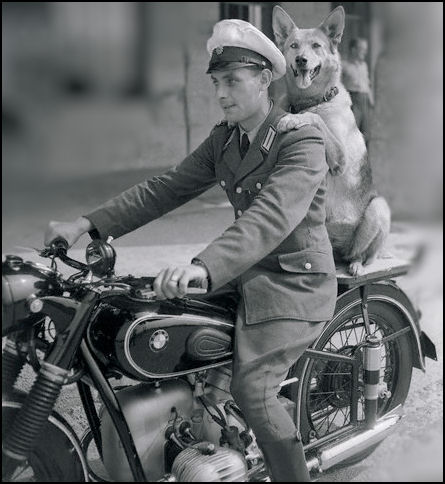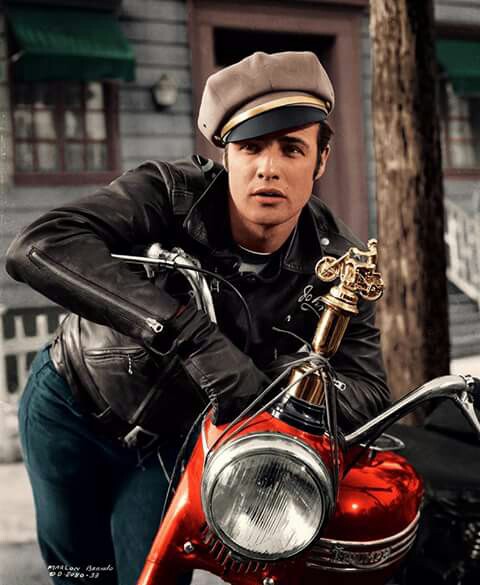| Capitol Hill Update
A United Front:
While D.C. is a city full of divisions sometimes, it’s nice to work together with like-minded groups for a common purpose. Last week, the MRF met with representatives from the American Motorcycle Association, Motorcycle Industry Council and Harley Davidson (AKA the Moto Lobby) to discuss common goals surrounding autonomous vehicles and safety concerns. The four groups have now agreed on a basic framework for our priorities and this week met with staff of the House Energy and Commerce Committee to discuss the legislative agenda surrounding autonomous vehicles.
As you may remember last year, the Senate and the House had competing versions of legislation that dealt with autonomous vehicles. The Senate version did not receive a vote on the Senate floor while the House version passed the House but was not taken into consideration by the Senate.
The Senate version included language that stated “detection, classification, and response to any circumstance or condition relevant to the dynamic driving task within the operational design domain, including sense of objects, motorcyclists, bicyclists, pedestrians, other road users, and animals in or crossing the path of travel through the automated driving system.”
The House version of the bill took a different approach and did not mandate specific categories that AV technology had to recognize and react to. Our Moto Lobby pressed committee staff to consider adding language that would specifically list motorcycles as something that AV technology must test for.
The reality of Congress at this time means any legislation dealing with AV technology is a steep hill to climb. With the Senate and House controlled by different political parties, any legislation that both chambers can agree on will be difficult. On top of that, the House committee assigned to the issue (Energy and Commerce) will be led by Democrats who will likely want to use committee time and resources to focus on issues like healthcare and climate change. While the Senate Committee with jurisdiction (Commerce Science and Transportation) has a new Chairman this year with new priorities which may not include tackling the AV issue.
Regardless, we at the MRF and the DC motorcycle community will continue to hammer away at legislators and agency officials warning them about our concerns and the need for a clear statement about AV technology and the safety of motorcyclists.

Regulatory Update
NTSB RELEASED TOP TEN MOST WANTED LIST:
Gone are the days when motorcycles were one of the issues on NTSB’s Top 10 Most Wanted List. On Monday, The National Transportation Safety Board released it’s 2019-20 Most Wanted List of Transportation Safety Improvements, and your MRF was pleased to see that we continue not to be a dedicated issue on this report. The comprehensive Top Ten list focuses on some things to note: distracted driving, impaired driving and most importantly, autonomous vehicle technology. As we have reported in the past, the DOT has been pretty laissez-faire on their guidance on the issue of autonomous vehicle regulation and legislation failed to move in the last Congress. In the section “Increase Implementation of Collision Avoidance Systems in all New Highway Vehicle,” the NTSB made a recommendation that the National Highway Safety Administration (NHTSA) incorporate motorcycles in the development of performance standards for passenger vehicle crash warning and prevention systems. We are pleased to see for the first time that a government agency is seeing the importance of making sure motorcycles are properly detected and responded to by this emerging technology.
You can download and read the entire list here: Download NTSB’s Top 10 Most Wanted List
 Politics and Elections Politics and Elections
Updating the Scorecard:
As hard as it is to believe much of the focus in Washington has already turned to the race for the White House in 2020.
The old saying, “you can’t tell the players without a scorecard” certainly applies to the formulating 2020 Democratic presidential field of candidates.
Last week, former Virginia Governor and ex-Democratic National Committee chairman Terry McAuliffe, who soon will likely take steps to formalize his own presidential campaign, said that regardless of the total number of people contemplating joining the race it is probable we could see as many as eight or nine candidates in serious competition for the party nomination. Mr. McAuliffe’s observation will likely prove correct.
The party rules involving delegate selection and apportionment, the fact that Democrats do not allow winner-take-all primaries or caucuses, the early voting schedule, and that Super Delegates no longer participate in the first convention roll call mean advancing to more than one ballot to determine the ultimate nominee becomes a distinct possibility. All of this adds to the uncertainty engulfing the early phase of this national campaign.
At this point, however, speculation is building around just who will advance into the credibility round, that is, those who have enough support to position themselves actually to win the nomination in July of 2020.
Let’s first look at the entire Democratic field, understanding that as many as 36 different individuals who at least at one time have publicly acknowledged consideration of forming, or expressed an overt desire to form a presidential campaign. Some have already made public statements declining to run, while another segment appears unlikely to join the fray. Even disqualifying the persons from these categories would still leave us with at least 23 individuals who could well enter the race.
Below is a list of the most recent activities of the various potential candidates (individuals are listed alphabetically):
Announced Candidacy or Formation of Exploratory Committee
Sen. Cory Booker – New Jersey – could be a player if he can get the financial backing of wealthy New York Metro area donors. He has used his seat on the Senate Judiciary Committee to try and raise his name identification with high profile television soundbites during recent hearings.
Mayor Pete Buttigieg – South Bend, IN – likely a minor candidate attempting to build a constituency among millennials and the LGBTQ community. Attempting to jump from his position as a small city mayor into the presidential campaign, a move that will likely prove unrealistic.
Ex-Secretary Julian Castro – Texas – former HUD Secretary under President Obama and served as Mayor of San Antonio. A long shot candidate who needs a credible showing to build for the future. He is attempting to build a base constituency among Hispanics and will emphasize the immigration issue.
Ex-Rep. John Delaney – Maryland – wealthy now-former Congressman. Began visiting Iowa and New Hampshire over a year ago but has reportedly made little headway.
Rep. Tulsi Gabbard – Hawaii – has a strong military career who was elected to the House in 2012 after winning races for the Hawaii House of Representatives and the Honolulu City Council. A bit of a surprise entry into the presidential contest, when announcing the formation of an exploratory committee earlier this month.
Some of her positions are very liberal while others make her more of a centrist. Has little in the way of a geographical base. She will have to score big in early debates to attract enough attention, but it appears Ms. Gabbard is capable of becoming a presence. Already, however, her presidential flirtation has attracted a major congressional primary opponent if she chooses to seek re-election.
Sen. Kirsten Gillibrand – New York – recently announced the formation of an exploratory committee. Moving strongly to her left to compensate for a more moderate record when serving in the House. May find it difficult defining and attracting a winning coalition considering the volume and level of competition.
Sen. Kamala Harris – California – announced presidential candidacy last weekend. Could be a major candidate. Will have a strong delegate base coming from California, a state that will now vote in early March. A delegate bonanza in the California primary could well place her near the top of the delegate count after Super Tuesday. Sen. Harris will also attempt to capture the strongest share of President Obama’s victory coalition.
Gov. Jay Inslee – Washington – publicly stated he will form an exploratory committee. Will use the climate change issue to anchor his vote coalition. Prior to his election as Governor in 2012, Mr. Inslee served seven non-consecutive terms in the US House.
Rep. Eric Swalwell – California – long-shot candidacy unlikely to develop. His California base will be overshadowed by Sen. Harris’ and Los Angeles Mayor Eric Garcetti’s presidential runs, and possibly others.
Sen. Elizabeth Warren – Massachusetts – one of the liberal leaders in the Senate who developed a strong constituency even before her original election. She is attempting to build upon the Democratic socialist base that Sen. Bernie Sanders forged in 2016. Sen. Warren may, however, find her position within this constituency being squeezed by Sanders himself, Harris, Gillibrand, and possibly many others. While her name identification is strong, early support appears lacking as single-digit performances in early national polls reveal.
Definitively Declined to Run
Gov. Andrew Cuomo – New York
Sen. Christopher Murphy – Connecticut
Ex-Gov. Deval Patrick – Massachusetts
Billionaire Tom Steyer – California
Likely to Run
Ex-Mayor and Media Mogul Michael Bloomberg – New York
Sen. Amy Klobuchar – Minnesota
Ex-Gov. Terry McAuliffe – Virginia
Sen. Bernie Sanders – Vermont
Possible Candidates; Not Yet Publicly Committing to Run
Former Vice President Joe Biden – Delaware
Sen. Sherrod Brown – Ohio
Gov. Steve Bullock – Montana
Mayor Eric Garcetti – Los Angeles, CA
Ex-Gov. John Hickenlooper – Colorado
Sen. Jeff Merkley – Oregon
Ex-Rep. Beto O’Rourke – Texas
Possible Candidates; Not Likely to Run
Sen. Michael Bennet – Colorado
Sen. Bob Casey Jr. – Pennsylvania
Mayor Bill de Blasio – New York City, NY
Hillary Clinton – New York Former Secretary of State, 2018 Democratic presidential nominee,
ex-Senator, and First Lady
Ex-Attorney General Eric Holder – Washington, DC
John Kerry – Massachusetts Former Secretary of State, Senator, and 2004
Democratic presidential nominee
Ex-Mayor Mitch Landrieu – New Orleans, LA
Rep. Tim Ryan – Ohio
Minor Announced Candidates
State Senator and 2018 US House Nominee Richard Ojeda – West Virginia (Already Withdrew)
Entrepreneur Andrew Yang – New York
Your MRF Crew,
Tiffany & Rocky
The Motorcycle Riders Foundation |